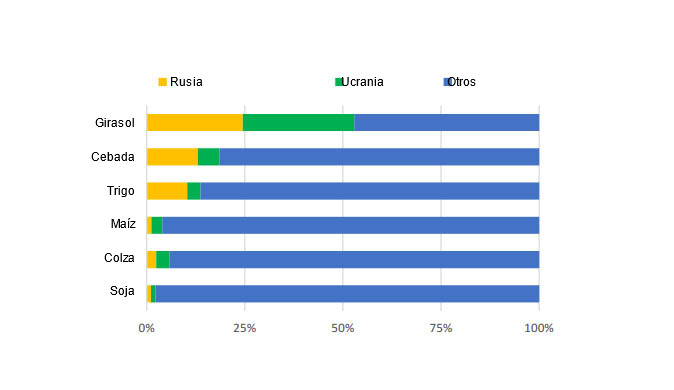Together, Ukraine and Russia provide 19% of the world's barley supply, 14% of wheat, 4% of corn, and account for more than a third of global grain exports. They are also the main suppliers of rapeseed and account for 52 % of the world's sunflower oil export market. World fertilizer supply is also highly concentrated, with the Russian Federation as the main producer.


Supply chain and logistical disruptions on Ukrainian and Russian grain and oilseed production and restrictions on Russia’s exports will have significant food security repercussions. This is especially true for some fifty countries that depend on Russia and Ukraine for 30% or more of their wheat supply. Many of them are least developed countries or low-income, food-deficit countries in Northern Africa, Asia and the Near East. Many European and Central Asian countries rely on Russia for over 50% of their fertilizer supply, and shortages there could extend to next year.
Food prices, already on the rise since the second half of 2020, reached an all-time high in February 2022 due to high demand, input and transportation costs, and port disruptions. Global prices of wheat and barley, for example, rose 31% over the course of 2021. Rapeseed oil and sunflower oil prices rose more than 60%. High demand and volatile natural gas prices have also driven up fertilizer costs.
March 11, 2022/ FAO.
https://www.fao.org





